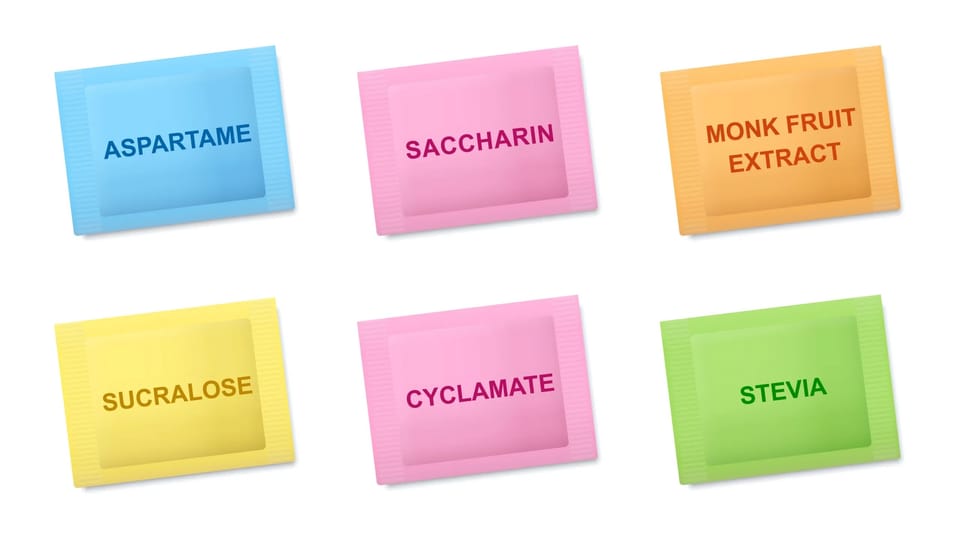Sweet Lies - Debunking the Fear Around Artificial Sweeteners

Let’s talk about Coke Zero and other Zero Sugar dri.
Or more broadly, let’s talk about what happens when we reach for something sweet that doesn’t come with a truckload of sugar—and the judgment that often follows.
You’ve likely heard the warnings:
“Artificial sweeteners are worse than sugar!”
“They’ll mess up your gut, trick your brain, and make you gain weight!”
Fear sells. And in the world of food and health, artificial sweeteners have become one of the biggest villains. But here’s the truth: the story is far more balanced than most headlines make it out to be.
What the Science Actually Says
Artificial sweeteners like aspartame, sucralose, and acesulfame-K have been studied for decades. And while they’re not perfect (what is?), they’re not toxic at the amounts people typically consume.
The idea that sweeteners are worse than sugar?
It doesn’t hold up in real-world studies.
Let’s use Coke as an example. A regular can of Coke has about 39 grams of sugar—that’s almost 10 teaspoons. This sugar causes a glucose spike, followed by an insulin response, and if your body doesn’t need the energy right away, that sugar is stored as fat.
Coke Zero? Zero sugar. Zero calories. No blood sugar spike.
That doesn’t make it a health tonic, but it does make it a better option than sugar-laden drinks when you’re trying to manage blood sugar, lose fat, or reduce calorie intake.
This isn’t about “clean eating” or being perfect. It’s about practical swaps that move us in a better direction.
The Dose Makes the Poison
Here’s where people get stuck. They hear about a study in rats that got bladder tumors from artificial sweeteners. But what’s missing from that story? The dosage.
Many of those studies gave rats the human equivalent of drinking hundreds of cans of diet soda a day. No one is doing that.
Even water, in extreme excess, can kill you. The key idea here is simple: the dose makes the poison.
Food safety authorities worldwide, including the FDA, EFSA, and WHO, consider moderate use of artificial sweeteners safe.
Why Sweeteners Can Be a Helpful Tool
Let’s be honest: people like sweet things. And total sugar abstinence isn’t sustainable for most of us.
When we cut out all sweetness, it often leads to bingeing later.
That all-or-nothing mindset—“If I can’t have sugar, I’ll just have nothing sweet at all”—creates a cycle of restriction and rebound.
Artificial sweeteners offer an alternative.
They give us variety.
They give us flexibility.
And that psychological freedom? It matters.
You don’t have to white-knuckle your way through every craving. Sometimes, having a Coke Zero or sugar-free gum can help you stay on track without feeling deprived.
And when we feel less deprived, we’re more likely to stay consistent. That’s where real, lasting change happens—not from perfection, but from a pattern of good enough choices.
Takeaways You Can Use Today:
- Coke Zero etc, is better than regular Coke if you’re trying to manage calories or blood sugar. It’s not magic, but it is a useful tool.
- Artificial sweeteners are safe in moderate amounts. Fear-based headlines often ignore the actual science and real-world context.
- Balance beats deprivation. You don’t have to cut out sweetness to be healthy. You just need to be intentional about where it comes from.
- Use sweeteners strategically. If they help you reduce sugar without triggering cravings or gut issues, they can absolutely support fat loss.
A Question to Reflect On:
What’s one area in your diet where adding flexibility could help you stay consistent, rather than relying on willpower?